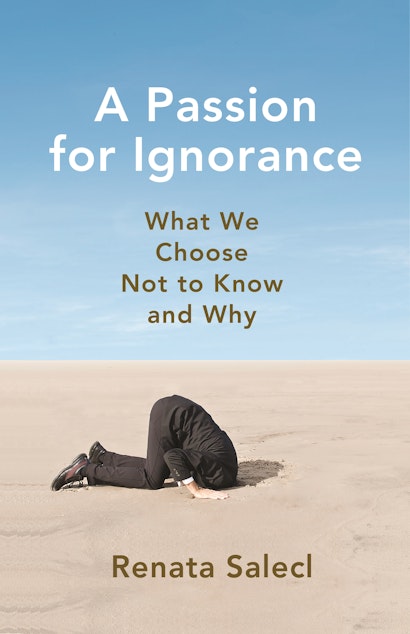Do we live in a post-truth era or have we always thrived on ignorance and illusions? In this conversation, two leading critical thinkers, Renata Salecl, author of A Passion for Ignorance: What We Choose Not to Know and Why (2020), and Bernard E. Harcourt, author of Critique & Praxis: A Critical Philosophy of Illusions, Values, and Action (2020), reflect on the important role of belief and denial in contemporary Western society.
Renata Salecl is a leading scholar on the subject of psychoanalysis and law, and she has a long association with the critical legal studies movement. She is professor at the School of Law at Birkbeck College, University of London and senior researcher at the Institute of Criminology at the Faculty of Law in Ljubljana, Slovenia. Her new book A Passions for Ignorance: What We Choose Not to Know and Why is published in September.
Bernard E. Harcourt is the Isidor and Seville Sulzbacher Professor of Law and professor of political science at Columbia University and a chaired professor at the École des Hautes Études en Sciences Sociales in Paris. He is also a social-justice litigator and the recipient of the 2019 Norman Redlich Capital Defense Distinguished Service Award from the New York City Bar Association for his longtime representation of death row prisoners. His new book Critique and Praxis: A Critical Philosophy of Illusions, Values, and Action is published in August. @BernardHarcourt
About the Book
Ignorance, whether passive or active, conscious or unconscious, has always been a part of the human condition, Renata Salecl argues. What has changed in our post-truth, postindustrial world is that we often feel overwhelmed by the constant flood of information and misinformation. It sometimes seems impossible to differentiate between truth and falsehood and, as a result, there has been a backlash against the idea of expertise, and a rise in the number of people actively choosing not to know. The dangers of this are obvious, but Salecl challenges our assumptions, arguing that there may also be a positive side to ignorance, and that by addressing the role of ignorance in society, we may also be able to reclaim the role of knowledge.
Drawing on philosophy, social and psychoanalytic theory, popular culture, and her own experience, Salecl explores how the passion for ignorance plays out in many different aspects of life today, from love, illness, trauma, and the fear of failure to genetics, forensic science, big data, and the incel movement—and she concludes that ignorance is a complex phenomenon that can, on occasion, benefit individuals and society as a whole.
The result is a fascinating investigation of how the knowledge economy became an ignorance economy, what it means for us, and what it tells us about the world today.
Renata Salecl, a philosopher and sociologist, is professor at the School of Law at Birkbeck College, University of London and senior researcher at the Institute of Criminology at the Faculty of Law in Ljubljana, Slovenia. Her books include The Tyranny of Choice and On Anxiety.
